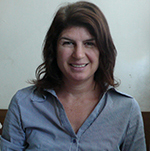Effective motivation letters I – tips, approach and principles
Motivation letters are a key part of applications for academic programmes, study abroad, scholarships, internships, academic posts, projects, research proposals and other applications in academia. Many of the principles below also apply to other types of academic applications such as project grants (EU and other), programmes, publishing proposals, biographies, job applications and others.
The post Effective motivation letters II – a sample motivation letter will provide a sample motivation letter to demonstrate the principles outlined below.
Tips, approach and principles
Keep it short
There are always exceptions to the rule, but in general, for resumes and cover letters alike, do not go over a page. Be concise and clear.
Be passionate and enthusiastic
The energy of passion and enthusiasm is powerful. Showing enthusiasm supported with concrete evidence of your interests and experience will make your motivation letter stand out. Demonstrating enthusiasm for the programme to which you are applying is also important.
Using concrete examples helps you to show passion and enthusiasm in a professional and academic way. Use of a phrase such as My passion for transition and reform in Central Europe started when I was an exchange student in Hungary captures the interest of the admissions committee and shows how you have developed and intend to follow your passion.
Clearly state your future goal/s and show your path
Admission committees expect you to have a concrete reason for applying for the programme that fits with your longer term academic and professional goals. This will also be important in an interview.
It doesn’t matter if this goal might change or if you are not sure yet. Find a way to clearly state a goal, the more specific the better. If you are very unsure you can state a general area (political science research, public policy) or give two goals using either/or (My goal is to work either in social media marketing or media relations…).
Using clear signpost language is an effective way to state your goal/s:
My goal is to deepen my understanding of Russian foreign policy while simultaneously improving my Russian language skills.
My goal is to work for the EU in developing countries. Since courses in the Czech Republic in this field are limited, I want to study development economics at the London School of Economics.
I see studies in development economics at the London School of Economics as the next step towards my goal of working for the EU in developing countries.
It is important to include both academic and professional/work experience. Even seemingly unrelated work often contributes to your interests, skills, knowledge base and path.
Show that you have researched the programme and specify how it helps you reach your goals
Saying I plan to study political science at the University of Seville is not specific and concrete enough. For a study programme for example you should clearly state specific courses and professors and how these fit into your bigger plan and help you reach your goal. Demonstrate that you have a clear purpose and plan.
This can include other aspects of the programme, for example internships or experiences available. For example, one student wanted to study in South Korea also to gain personal experience of the marketing environment there.
Show added value
The admission committee wants to know the added value the programme brings you and the added value that you bring to the programme. All the information provided in your motivation letter contributes to this.
One clear motivation for applying to international programmes is that the courses, experiences, research resources or other opportunities may not be available in your home country. It is important to state this in your application as it shows the added value of the programme for you.
Stating the added value that you bring to the programme is also important. The admissions committee wants to know that you will be an active and motivated participant. It can be a bit uncomfortable as many cultures value modesty but “selling yourself” is important in applications. This does not mean being arrogant but rather demonstrating what you will bring to the programme.
Phrases such as I hope to contribute a Central European perspective to discussions, I look forward to playing an active role in the university community can be useful. For example, if you have experience in working in social care in your country, you could mention that you want to contribute this experience to discussions. This can include non-academic activities at the university or in the country.
Differentiate yourself from other candidates
Be yourself
The motivation letter is your chance to show what is unique about you.
Much of the information in your application, academic records, CVs etc. will be similar to other applicants. The admissions committee wants to know specifically why you have chosen their programme and institution.
For example, most candidates applying for a programme in Canada will mention improving their English, so in addition to this, you should clearly state your specific reasons in terms of academic, professional and other opportunities.
For programmes abroad the admissions committee often likes to see that you have a genuine interest in the country, so if there is something else that interests you such as a cultural, sports or other interest, state this in your motivation letter.
For example, one student was interested in Canada also because she was a passionate hockey player. Stating this in her motivation letter showed another aspect of how she wanted to be part of the university community abroad.
Show don’t tell
Be specific and precise
The best way to demonstrate your interests, skills and knowledge is generally to show them using specific concrete examples. This applies to academic experience and other experience.
Compare the following:
My main academic interest is voter behaviour.
After working in the 2018 Czech elections I became very interested in voter behaviour, focusing on this in my studies and doing an internship at STEM, which researches public opinion.
I am very interested in Germany.
I am very interested in Germany and modern German history. That is why I chose this specialization in Area Studies and spent last summer in Germany studying German and volunteering at a museum.
Mention previous international experience
Many applicants for international programmes do not have experience abroad. That is in fact a good reason to apply.
If you have previous experience abroad it is important to mention it. This could include study programmes, summer work, travel, language study etc. in the country you are applying to or other countries. This serves two purposes. First, having been in the country or region before shows previous interest. Second, this demonstrates to the admissions committee that you have international experience, intercultural and language skills (if applicable). Mentioning this gives them confidence that you will be successful in the programme abroad.
Finish strong
It is tempting to treat the final lines of your cover letter as a throwaway: “I look forward to hearing from you.”
Your closing paragraph is your last chance to emphasize your enthusiasm for the study stay or how you would be a great fit…
Phrases such as the following can be used:
I would welcome/be very pleased to have the opportunity to study at _________________. I am convinced that the specialized coursework above and living in Sweden will help me gain understanding of the pension system within the Swedish social model. I look forward to discussions with Swedish students and professors and hope to contribute a Central European perspective. As an avid cross-country skier, I would be keen to join the amateur cross country ski group at the university to meet local students and learn about life in Sweden.
I am excited to find a programme that combines my interest in … with…
These can be followed by:
Thank you very much for your consideration. I look forward to hearing from you.


Leave a Reply